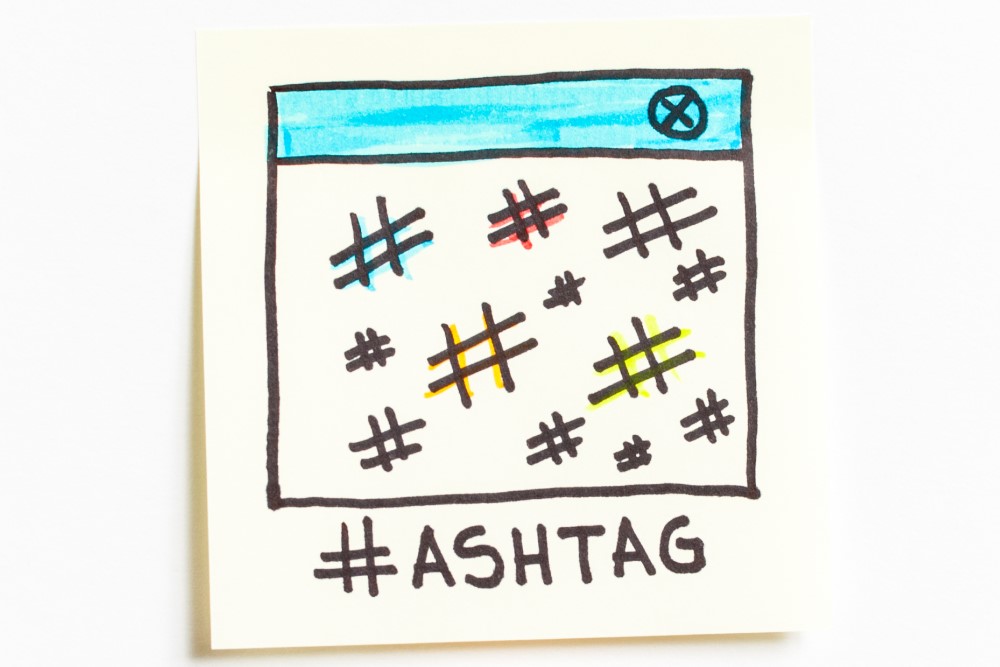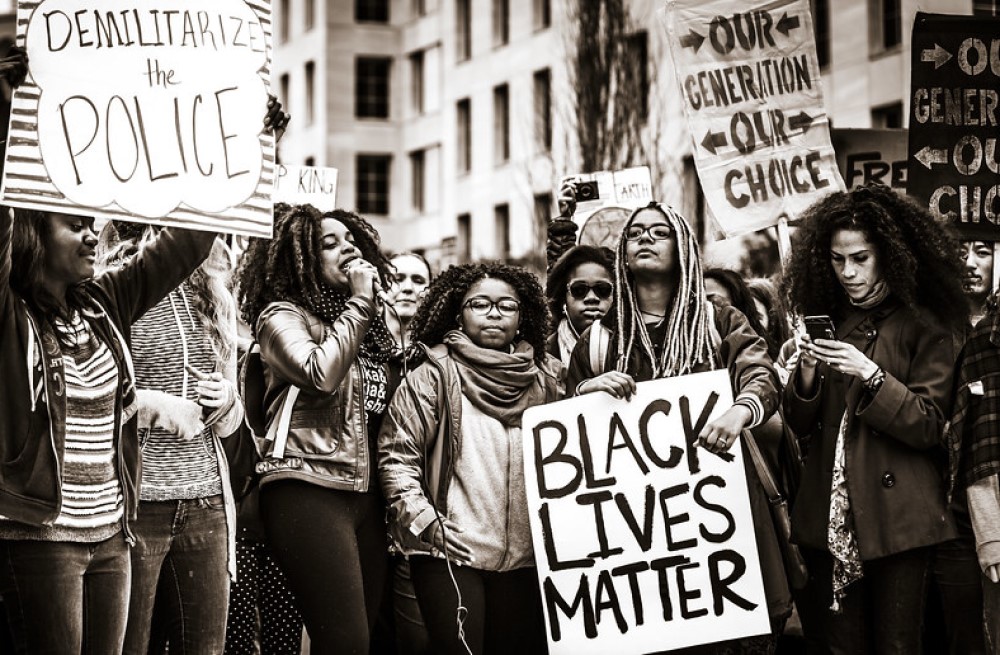Are hashtags ruining political discourse? On Twitter, the hashtag now serves little technical purpose following upgrades to the site’s search function, yet the use of hashtags in the political sphere are incredibly popular as a means of bringing attention to, or giving one’s thoughts on, a subject of significant public interest. While some suggest that hashtags facilitate better public debate, there is good reason to believe that they also make political discussion less rational and more polarized. If the means of expressing political ideas through a hashtag makes political discourse worse off, then their continued use poses a morally significant decision for anyone choosing to use them.
Let’s begin by considering a hashtag like #defundthepolice. The past year has drawn more attention to the idea of police reform. While much of this attention centered on reduction of police violence following the death of George Floyd, greater focus has also been attached to reconsidering the institutions and meaning of policing. For example, questions have been raised whether police should be responding to mental health crises. In the case of Daniel Prude, for instance, police responded to someone in a state of delirium and it resulted in Prude’s death. Walter Wallace Jr. suffered from bipolar disorder until a domestic disturbance also led to his death by the police. 13-year-old Linden Cameron is now paralyzed after being shot by police responding to a call that a juvenile was having a “violent psychological issue.”
These cases remind us that police are called to handle a wide variety of social disturbances and that the best way to handle such cases might vary, which can render traditional policing a bad fit. It is worth noting that the concept of policing and the means by which public order has been maintained has changed over time. For example, not that long ago, it was a novel idea to have a police force that went out and actively investigated crimes, or to have uniformed officers use military-style training and tactics. And yet, many concepts of policing and their institutions come from a time before any significant advances were made in understanding and treating mental health, and before contemporary methods for social work were devised. The question, therefore, is whether the concept of policing, and the means employed, still best suit the problems for which they were created as we understand those problems today?
In terms of the debate about reform, it is important to note that this isn’t an issue of big or small government. Police already respond to these calls anyway; taxpayers already pay for these services (and the lawsuits that follow from them). Deciding what kinds of problems we think police should respond to, whether social workers should be involved, and how to assess effectiveness are all matters for careful community debate, evidence-gathering, and experimentation. But does a slogan like “#defundthepolice” actually make this deliberative process worse?
Part of the problem with a phrase like “defund the police” is that it is incredibly vague: Does defund mean to reduce in budget? Does it mean elimination of police? Does it mean reform to traditional policing? But the problem is even more complicated. The broader question facing the public is about redefining what “policing” even is (and should be) given our current understanding of the contemporary problems it is meant to address. Given this, we may choose to redefine social work and policing such that they may blur. Police officers do not have to be the only people involved in ensuring safety and preventing disorder. So, what does “the police” mean? Are we talking about a specific police institution, such as in the case of Minneapolis where the police department itself may be eliminated? Or does “the police” refer to the entire concept of civil protection in general?
Part of the problem with the popularization of a phrase like #defundthepolice is that it not only makes political discourse more ambiguous, but that it also has the potential to limit our thinking. We do a disservice to ourselves and our concepts by presuming a narrow definition of things like “policing” in our shared vocabulary and collective imagination. And the ambiguity introduced with such slogans may make it more difficult to achieve political consensus.
In a recent study by Eugenia Ha Rim Rho and Melissa Mazmanian of the University of California comparing the difference between people who read news which includes hashtags compared to news which does not. They found that when people were exposed to a politically charged hashtag like #BlackLivesMatter or #MeToo, these people were more likely to use partisan language to discuss the news, and more likely to focus on assumed political biases rather than the social issue discussed in the news content. The study notes, “those shown news posts with hashtags exhibited more black-and-white and less emotionally temperate rhetorical patterns compared to the control group” and found that nuanced understandings of content get drowned out by the hashtag. Such findings reinforce the idea that hashtags are potentially harmful to political discourse.
On the other hand, researchers have assumed that political hashtags facilitate better and more meaningful conversations. Such hashtags are known to increase narrative agency by allowing for personal and communal storytelling. For example, the ability to share personal stories using the #MeToo hashtag contributes to political discourse on the issue of sexual harassment by offering perspective and by making the nature of the problem clearer. Hashtags can also make it easier to draw attention to important issues that might not receive attention otherwise, and allow for more opportunity for contribution by each participant in the discussion. As a recent paper argues, Twitter does offer the potential for the emergence of non-elite actors to engage in content creation and framing in communities that form in response to an event or issue.
Hashtags can also be used as part of heuristic processing, making it easier to understand topics and events. This can facilitate communication, organization, and cooperation in response to social issues. As a form of “hashtag activism,” the use of hashtags may make people more likely to be engaged. According to a 2014 study almost 60% of Americans felt that tweeting or posting about something is an effective form of advocacy. As Bev Gooden, a creator of the hashtag #whyIstayed, notes, “I think the beauty of hashtag activism is that it creates an opportunity for sustained engagement.”
So while there is a lot of potential promise to the idea of hashtags as a tool to rally and inform, hashtags also have the potential to rally to the point of obstinacy and to misinform. Of course, it is unlikely that all hashtags will always have the same effects on political discourse and so the choice of when to use them, and how, ultimately becomes an important individual moral question about how to best contribute to a public democratic discourse, demanding of us the need to carefully consider nuance and context.


